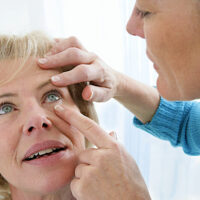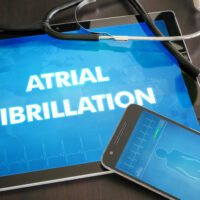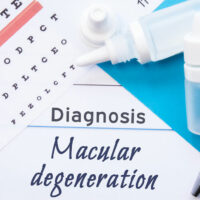Watch out for these 11 silent signs of lymphoma

Lymphoma is a form of cancer that affects the lymphatic system in the body, which is responsible for fighting germs and infections. There are two main types of lymphoma – Hodgkin’s Lymphoma and non-Hodgkin’s Lymphoma. The symptoms of lymphoma can vary widely between individuals and some of them are often vague, which can be mistaken for other health conditions. It’s important to be aware of some of the silent signs of lymphoma, such as:
Swollen lymph nodes
As the name suggests, lymphoma primarily affects lymphocytes (white blood cells made in the bone marrow and lymph nodes) in the body. They are mostly concentrated around the neck, groin, armpit, and spleen.
To fight off infections, the lymph nodes push the white blood cells into action, which leads to swelling or a feeling of tenderness around the area. However, with lymphoma, the nodes swell up due to the presence of cancerous cells. Most people with swollen lymph nodes due to lymphoma do not report any pain or tenderness.
Fever
One of the most common signs of immune system activation is a fever. It does so to fight off any infections or in response to cancerous cells. If one keeps developing fevers without any underlying cause, it may signal lymphoma. Consult a healthcare provider immediately for a diagnosis.
Night sweats
Night sweats are a common symptom associated with menopause and autoimmune disease. However, they may also be a warning sign of any type of lymphoma. Although more studies are required in this field, some experts believe that this symptom may be a part of the body’s natural reaction to the chemicals produced by lymphoma cells.
Bone pain
If the lymphoma affects the bone marrow, it may also cause bone pain. This pain may be felt even when one is resting. In some cases, this may lead to weakening of the bones, increasing one’s risk of fractures.
Loss of appetite
Some people may also lose their appetite, or feel full too quickly. In some cases, those with lymphoma may experience gastrointestinal problems such as vomiting or abdominal pain. When lymphoma develops in the lymph nodes of the digestive tract, it may also cause:
- Bloating
When the lymphoma affects the liver, it may result in fluid build-up in the abdomen, causing bloating. - Nausea
Lymphoma affecting the stomach may lead to problems like abdominal pain and nausea.
- Diarrhea or constipation
Lymphoma in the bowel region may cause abdominal pain, diarrhea, or constipation.
Persistent fatigue
Lymphoma causes an overproduction of lymphocytes in the bone marrow. This process slows the production of other healthy cells, like red blood cells, resulting in anemia. One of the most common symptoms associated with anemia is constant tiredness or fatigue. Other common symptoms include pale or yellowish skin, irregular heartbeat, dizziness or lightheadedness, chest pain, and cold hands and feet.
Bruising and bleeding
As discussed above, lymphoma can reduce the production of healthy blood cells. It includes platelets, which help with the formation of blood clots. As a result, those with lymphoma are at a higher risk of experiencing bleeding problems such as heavy nosebleeds and excessive bleeding from cuts and wounds. Additionally, one may also experience easy bruising and rashes of tiny blood spots under the skin.
Shortness of breath
Some lymphomas start in the thymus gland. Swelling in this gland or other lymph nodes in the chest can put pressure on the windpipe, leading to the onset of symptoms like coughing, chest pain (generally behind the breast bone), chest pressure, loud breathing, or shortness of breath. Although swollen lymph nodes in the chest may occur with any lymphoma, they are most commonly seen as a symptom of Hodgkin’s Lymphoma.
Itchy skin
Although dry skin often causes itching, it can also be a symptom of a more serious condition. If one experiences unusual severe itching, it may be a sign of lymphoma. A burning sensation usually accompanies this type of itching and can even lead to the development of a rash in certain cases.
According to some experts, this itching results from the production of cytokines in the body, which irritate the nerve endings in the skin. This itching may be limited to the affected lymph nodes or extend across the entire body.
Abnormal uterine bleeding
Lymphomas starting in the uterus or cervix may also cause abnormal uterine bleeding. It could occur in the form of a heavy menstrual cycle or bleeding again post-menopause.
Other symptoms
Those with a specific type of lymphoma, called Waldenström macroglobulinemia, may also experience symptoms like headaches, dizziness, confusion, blurred vision, kidney problems, and numbness in the feet and legs.
Contacting a healthcare professional
When one begins to notice any of these symptoms or abnormal changes in the body, it is advisable to get in touch with a doctor. An early diagnosis of lymphoma can be critical to a successful treatment. Follow these tips at the doctor’s appointment:
- Create a journal of the symptoms. Note down important factors like when they started, how often they occur, and what makes them better or worse.
- Discuss any family history of cancer.
- Ask any questions that may help one understand the condition better. Write things down if it helps.
Due to the vague nature of the symptoms, experiencing these signs does not implicate the presence of lymphoma. They could be a result of several other conditions or infections. However, seeking medical help in a timely fashion can improve one’s chances of an accurate diagnosis and treatment.
Depending on the type, severity, and spread of lymphoma, doctors tailor individual treatment plans. For Hodgkin’s Lymphoma, treatment generally consists of chemotherapy and radiation therapy to destroy cancer cells. In the case of non-Hodgkin’s lymphoma, radiation and chemotherapy may be combined with the use of biological therapies to target affected B-cells. It may also be supplemented with a bone marrow transplant to boost immunity.





